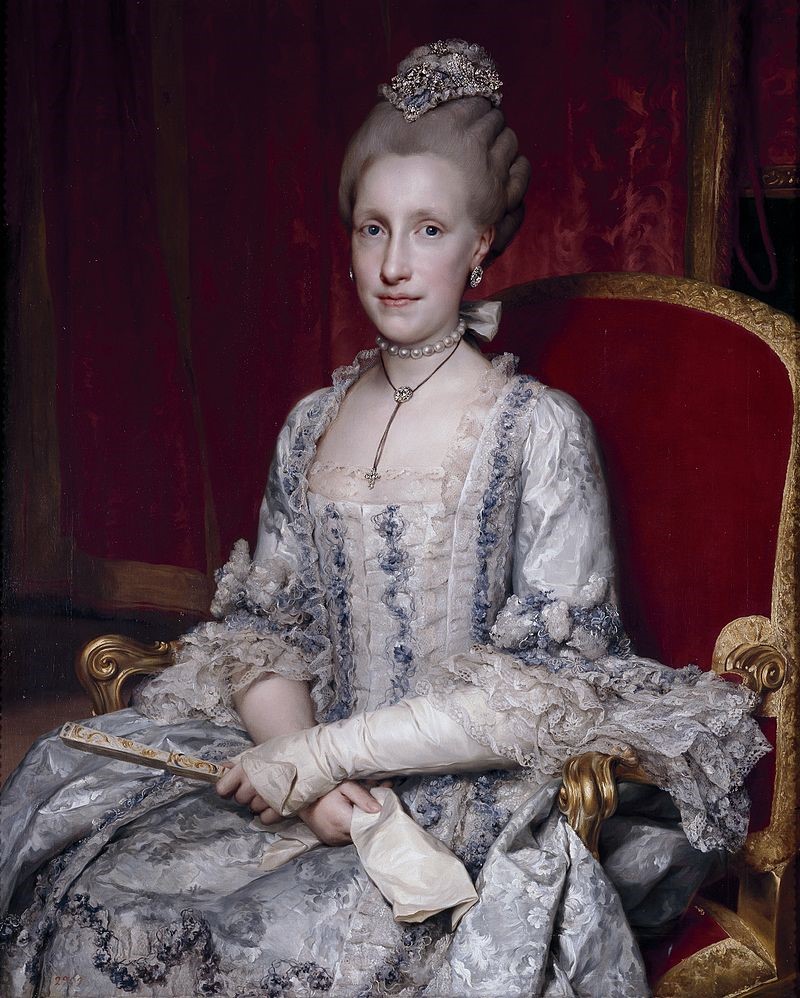Infanta Maria Luisa
Historically, Marie Antoinette is the most famous woman from the time of the French Revolution, but she was not the only famous woman of the era.
At least two others, one who was not human, also ruled.
A direct contrast to Marie Antoinette, Infanta Maria Luisa becomes known for her careful spending and her kindness toward the poor.
She is born in Italy after her father, the king of Spain, takes over part of that country. She later becomes the queen of Hungary and Bohemia (now the Czech Republic) after her marriage to the Holy Roman Emperor, Leopold II.
Unlike her husband, who is cold and unapproachable, she is noted for her goodness. Deeply religious, she ignores his many affairs with other women.
When a famine strikes Italy, she provides food and medical supplies to the poor and even goes into the slums to offer hope and other moral assistance.
She also becomes a shining example of motherhood. She works hard to raise her children to be caring rather than just rich elite. She wants them to love God and to remain happy despite life’s difficulties.
When her husband dies, Maria Luisa is heartbroken. She passes away three months later. She does not live to see her son become the new emperor.

Identify to and be verbs in the following. Remember: To is a verb only if a verb follows it.
Then use a highlighter to mark the words in the reading.
1. She is a direct contrast to Leopold. | 5. She makes sure to raise her children to be caring |
2. She pretends to be ignorant of his many affairs. | 6. She wants her children to remain happy despite life’s difficulties. |
3. She provides food and medical supplies to the poor. | 7…. and be blessed with a love of God. |
4. She even goes into the slums to offer hope.
| 8. She does not live to see her son become the new emperor. |